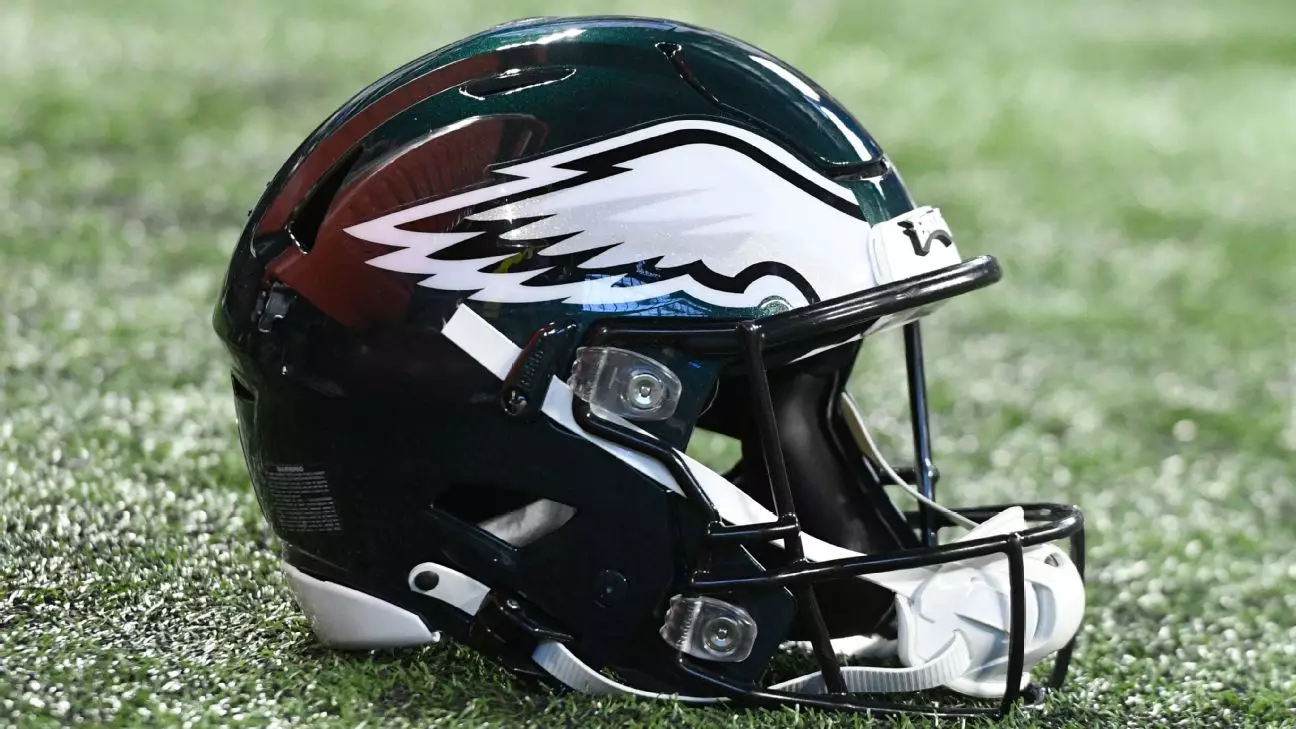The recent trade that saw the Las Vegas Raiders send cornerback Jakorian Bennett to the Philadelphia Eagles in exchange for defensive tackle Thomas Booker marks a significant strategic shift for both teams. For the Raiders, this move is rooted in pragmatic necessity, reflecting a focus on shoring up the interior of their defensive line. After releasing Christian Wilkins, who had been sidelined by a Jones fracture, the Raiders recognized the need to acquire a versatile defensive lineman who can contribute immediately. Booker’s inclusion aims to bolster a defensive front that has lacked consistency and depth.
From a broader perspective, trading a young, promising cornerback like Bennett underscores the Raiders’ evaluation of their current roster priorities. Bennett, who showed potential in his second NFL season, experienced a marked decline in standing within the team’s cornerback hierarchy, largely due to injury setbacks and increased competition. His forced shift to the second and third units indicates that the coaching staff is actively seeking more proven options at outside corner, such as Eric Stokes and rookie Darien Porter, who have garnered more first-team opportunities.
Crucially, this transaction also reveals a nuanced understanding of roster management. The Raiders appear to be betting on Booker’s experience and his fit within their defensive scheme. With 17 games under his belt, primarily with the Eagles, Booker offers a level-headed veteran presence amidst a competitive interior line that includes Tyree Wilson, Leki Fotu, and promising rookies. While he may not be a superstar, his role as a rotational contributor can help mitigate the loss of other key players and provide the Raiders with greater flexibility during the regular season.
Philadelphia’s Dilemma: Filling the Void at Cornerback
Meanwhile, the Eagles are faced with the complex challenge of replacing the departed Darius Slay, a cornerstone of their secondary. The signing of Adoree’ Jackson and the ongoing competition between Kelee Ringo and other cornerbacks highlight Philadelphia’s intent to find a reliable outside presence opposite Quinyon Mitchell. The fact that the starter position remains unsettled signals a team that is actively searching for the right combination of talent and cohesion.
Coach Vic Fangio’s comments reflect an even-handed approach, emphasizing the close competition and the team’s satisfaction with multiple players. It’s evident that the Eagles value versatility and are not rushing to a conclusion, instead opting for a merit-based evaluation. This strategy ensures they can maximize their coverage options, especially against high-octane offenses.
Interestingly, losing a veteran like Slay—who brought experience and leadership—could leave a noticeable void. Yet, the Eagles’ decision to bring in Jackson and give rookies like Ringo opportunities demonstrates a willingness to develop young talent and adapt during camp. This approach suggests that Philadelphia’s secondary may still be a work in progress but is built on a foundation of competitive depth and potential.
Implications for NFL Roster Dynamics and Future Expectations
This trade exemplifies the NFL’s ongoing narrative about the importance of positional flexibility and strategic depth. The Raiders aiming to strengthen their interior defensive line indicate an understanding that pass rush and run defense rely heavily on versatile, battle-tested players. Meanwhile, the Eagles’ focus on shoring up their secondary reflects their recognition of how crucial perimeter coverage is in today’s pass-heavy league.
Both teams are making calculated gambles—Las Vegas trading youth for experience, and Philadelphia betting on the development of its secondary corps. Such decisions are often reflective of a larger philosophy: that football success depends less on individual stars and more on cohesive, adaptable units. The NFL’s parity means that depth, versatility, and scheme-fit often determine playoff success more than headline-grabbing signings.
This crossroad also signals the overarching importance of identifying and fostering talent from within the roster. The Eagles’ ongoing competition at corner suggests a team committed to evaluating breadth rather than relying on veteran imports alone. For the Raiders, integrating Booker into their scheme will test their ability to develop trusted backups that can seamlessly step in when injuries strike.
In the end, this move set is emblematic of a league that demands strategic agility. Both the Raiders and Eagles are actively reshaping their rosters to optimize for durability, flexibility, and long-term competitiveness. While some may see such trades as mere roster churn, they are, in reality, calculated steps born out of a deep understanding that NFL seasons are won not just on star talent but on the resilience and adaptability of team units.

